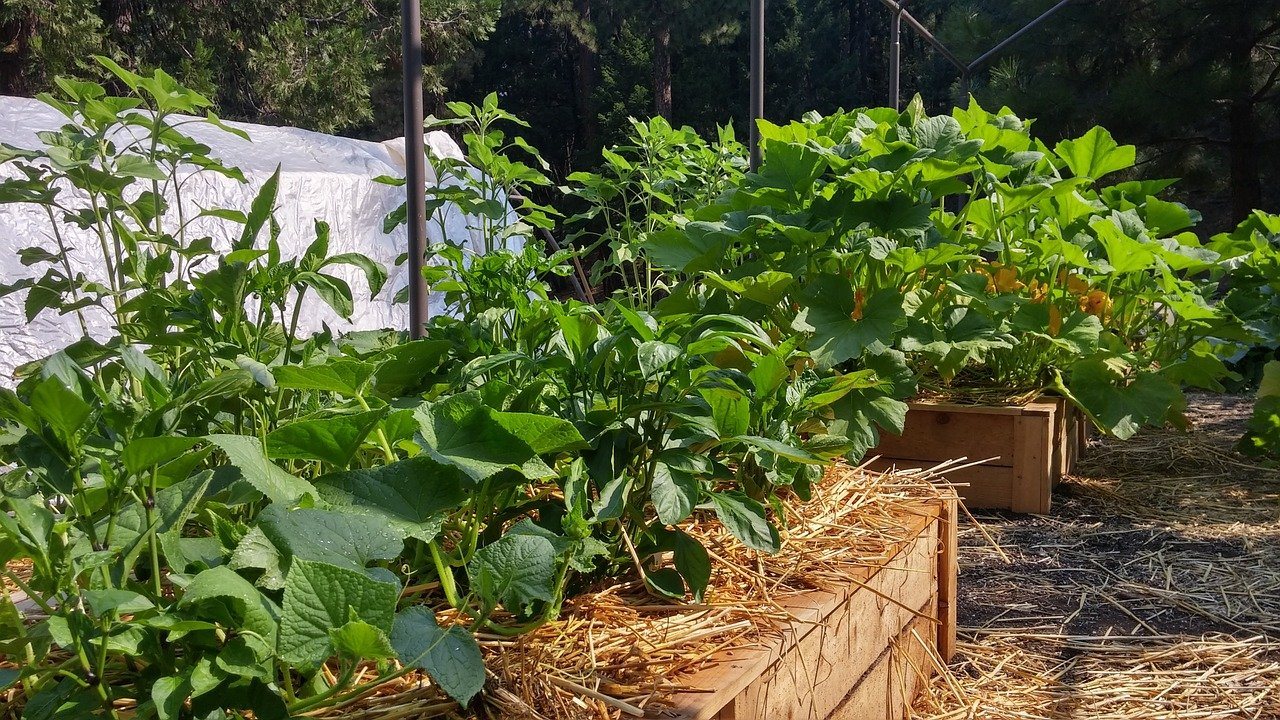Last Updated on
Organic gardening entails the mixing of several strategies with the ultimate goal of obtaining healthy crops. Pests and diseases are the biggest threat of organic gardening and the most important challenge gardeners need to overcome.
Whenever such as problem occurs, you need to find the right remedy, the solution that will deal with your problem without poisoning the soil, the crops or the people who eat these vegetables.
Always start by identifying the specific pest or disease you need to fight before taking action to address them. Apparently, 95% of insect species that populate your garden are good for your crops. The first thing you should do is to learn what are the pests that can harm your crops before starting to spray poisons all over the place. The best way to deal with such pests is with Ant & Garden Organic Pest Control.
Only use these sprays when these previously identified pests or diseases severely affect your plants. Rushing up to spray chemicals without target may kill good insects and trigger other issues you’ll need to deal with later on.
Good Practices In Organic Gardening
Research shows that insects choose to attack weak and sickly plants rather than healthy, vigorous ones. By enriching your soil with nutrients, you’ll not only enjoy better crops but you’ll also keep unwanted guests away.
Whenever possible, avoid using nitrogen-rich, fast-acting substances. They damage the earthworm population and the microorganisms. Also, they stimulate plants to grow tender and therefore attract more insects and diseases.
The best nutrients are the ones provided by compost and properly prepared manure. They are also an excellent source of microorganisms your soil needs to preserve its health and its fertile potential. The best thing to do to ensure you always have a healthy garden is to regularly spread compost or manure onto the soil.
If you consider your crops could use a boost of nutrients, apply fish or seaweed liquid fertilizer. These substances can help balance the nutrient content of the soil and help plants to grow healthy.
1. Water
Plants that don’t get enough water are more prone to suffering from diseases and pest attacks. Consider using mulch and compost to allow the soil to retain moisture more effectively. This could make your plants need half of the usual amount of water. Such solutions are ideal for counteracting the global warming effects.
Consider watering your garden early in the morning to reduce the risk of fungal diseases. This is the best way to keep your crops dry overnight. Whenever the soil in your garden is wet, avoid stepping on it to prevent soil compaction and to counteract the spread of fungal diseases.
Mulching is an effective method to insulate the soil and to keep its temperature constant throughout the day. Temperature fluctuations are extremely stressful for the plants. They make them more prone to suffering from pest and disease attacks. Furthermore, mulching eliminates soil splash, thus keeping your crops away from infections with Botrytis and other soil-borne fungi.
2. Sunlight And Air Movement
Plants need air movement and a good portion of sunshine to stay healthy and protected from pests that prefer high humidity. Consider improving air circulation by regular pruning and training, as well as by selecting your sites with great care.
3. Sanitation
Always clean up garden waste and dispose of it the right way. Don’t place any infected material in your compost bin, as you risk to promote the propagation of this infection.
4. Solarisation
If you need to sterilize infected soil, consider covering it with black plastic foil for at least several weeks.
5. Crop Rotation
The rotation of crops around your garden is an effective method to prevent pests and diseases. Create an annual rotation planning on paper and take it into account when you plan your next year’s garden layout. You should allow at least three years to pass before planting the same crops on the same sites.
6. Attract Natural Enemies Of Pests
Attracting beneficial insects to your garden can help you prevent the spreading of pests and diseases. Hoverflies, ladybirds and honeybees are among the most beneficial insect species. This type of biological control that consists from breeding such insects on purpose is available from a wide range of companies. All you need to do is seek for them and ask them for help.
7. The Right Crops At The Right Time
Planting your crops either too early or too late may result in failures. Also, the type of climate these plants thrive in and the pH of the soil can make all the difference. Choosing the wrong plants and planting them at the wrong moment may lead to pest attacks. For instance, planting crops during summer may increase the risk of pest attacks.
8. Avoid Singular Crops
If you plant one single crop over a large surface, you’ll do nothing but attract insects and diseases to attack them. Try to divide your garden into smaller patches and plant them with different crops and with flowers that attract good insects.
9. Pick Resistant Varieties
Non-hybrid varieties created to resist disease are the best choice. Even though hybrid plants are very resistant, their seeds may not breed the same way.
10. Companion Planting
Planting crops in pairs can help you keep unwanted insects away. For example, anise will help you repel aphids, while catnip will prevent squash bugs invasions.


Reply